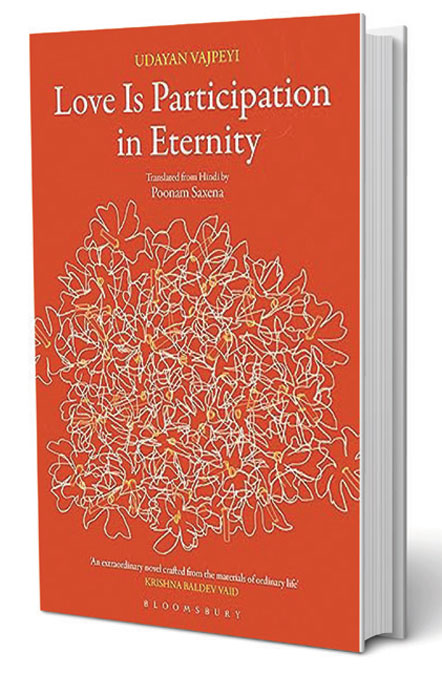Book Review: Love is participation in eternity


About two-thirds of the way through Udayan Vajpeyi’s Hindi novel Qayas—translated to English by Poonam Saxena as Love Is Participation in Eternity—a character named Alim thinks: “Death may close the doors to a life, but it flings open the doors to all the stories and incidents of that life.” This is a significant comment, not just on life (and death) in general but on the theme of this offbeat, thought-provoking novel. Alim, who has aspirations of joining the civil services, is working at a library, an old space lovingly resurrected by a man named Sudipt. Sudipt it was who cleaned out the forgotten colonial-era building, who dusted the books and arranged them, who brought the library again to life.
And it is Sudipt who has died, Sudipt whose death “flings open the doors to all the stories and incidents” of his life. Who Sudipt was, who the people in his life were, what happened—all of this is built up through the chapters. Each chapter’s title is the name of a person (with two significant exceptions), and that person—Alim, Kishore, Vandana, Mridula, Noa, Lakhna, et al—is the first-person narrator of that chapter, talking about themselves, about Sudipt. What might have happened, what it might have meant, how they behaved, how they might have behaved.
It's the Pits!
13 Feb 2026 - Vol 04 | Issue 58
The state of Indian cities
This is a story of a love affair (but is it an affair, really, in the sense the world imagines an ‘affair’?), between Sudipt— married to Mridula and father to a little girl named Noa—and Vandana, the college-educated daughter of a conservative family that runs a saffron-selling business. Vandana and Sudipt’s affair results in them organising a regular literary show at a local hall where Vandana presents a talk on literature. But their relationship is, of course, unacceptable to most. Vandana’s uncle Kishore and her belligerent brother Biddu have been so inimical that suspicion falls on them: Perhaps it is they who have had Sudipt murdered?
Love Is Participation in Eternity is not, however, a mystery novel. True, the mystery is cleared up, but in a very matter-of-fact way that comes across as tying up a loose end: of making sure no reader asks: “But who killed Sudipt?” This story is not about a crime, not about an investigation. Khalid Jawed, in his quote for the book, recalls “Kurosawa’s Rashomon”, but there is a difference. Rashomon (or, actually, Ryunosuke Akutagawa’s story ‘In a Grove’, which first used the idea of the multiple narrators) is about people telling diametrically different stories. Vajpeyi’s book may have different narrators but no narratives clash; none leaves us wondering “Who is lying?” Here, nobody is testifying; nobody needs to lie. What comes forth is the truth, and it helps build the overall story.
This is a tale about relationships, human emotion, the ways we connect with those around us. Each chapter plays out as a reflection on the past and the present: there is introspection here, there are memories and hopes. Through these multiple narrators, we see not just them but also Sudipt. Sudipt as father, as husband. As lover, boss, a passing acquaintance: so many roles; so many perspectives on one life.
Ultimately, Vajpeyi’s novel is a lyrical, touching reflection on life, and on how love can help us make our way through life. If we are to live on, if we are to not be forgotten by those in whose lives we once made a difference, we need to be ready to love, to forgive, to be empathetic.
